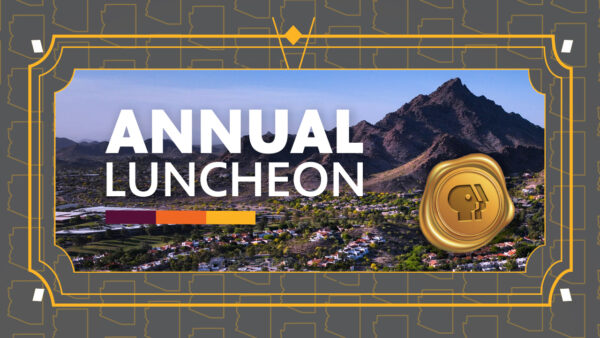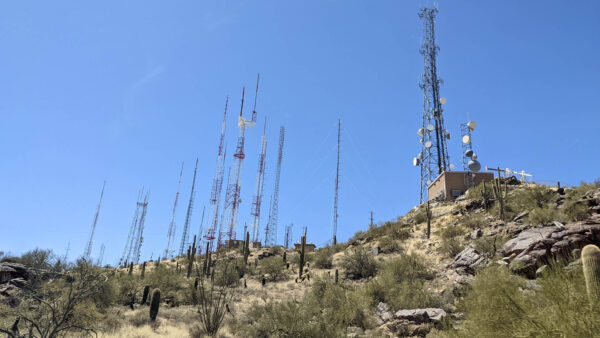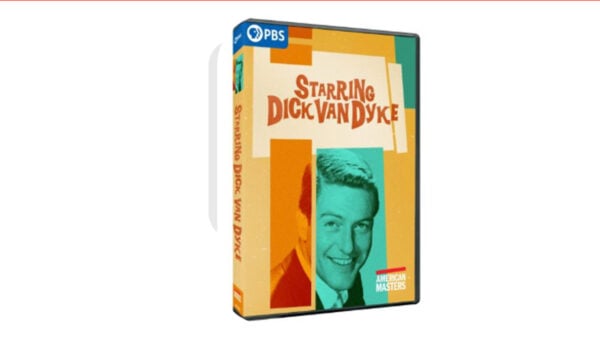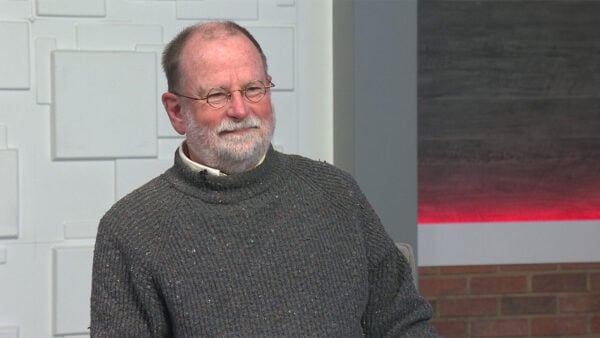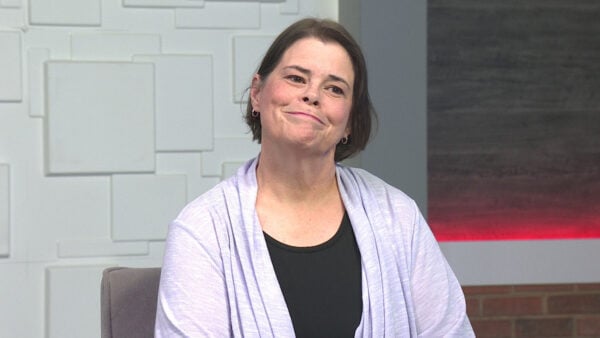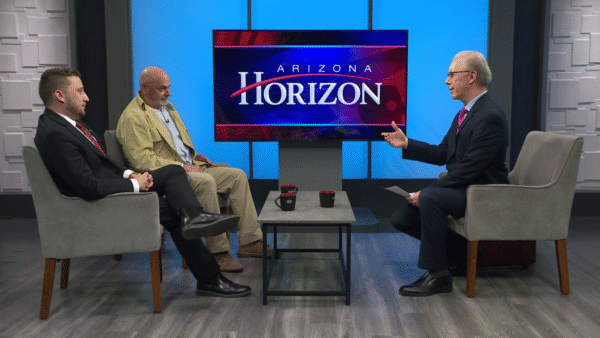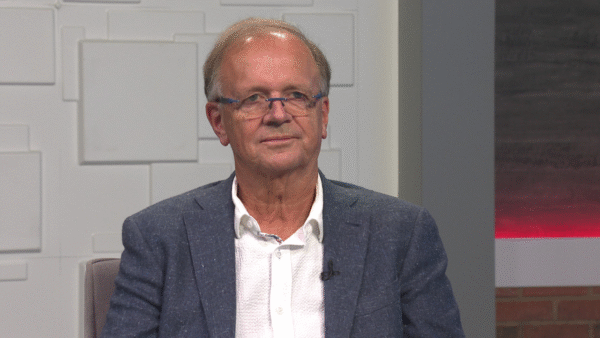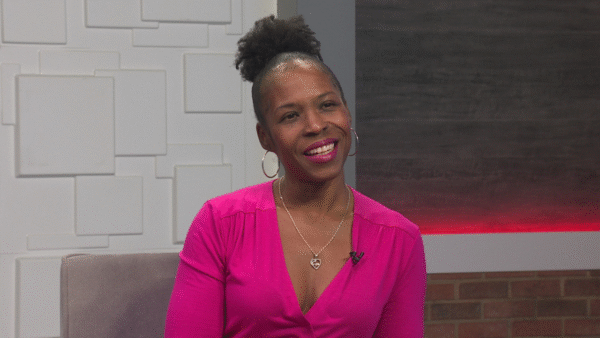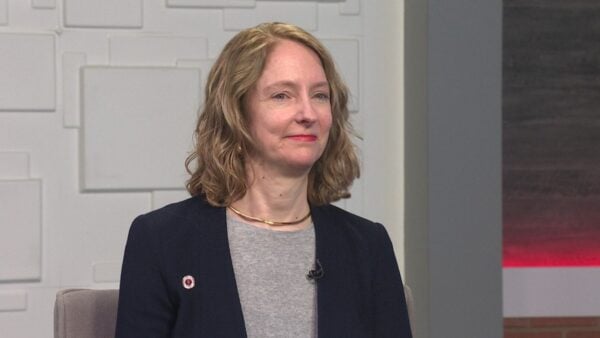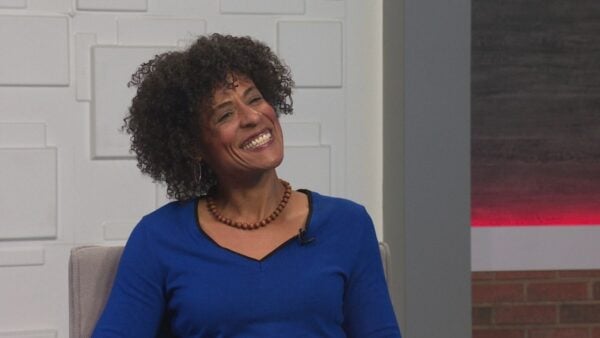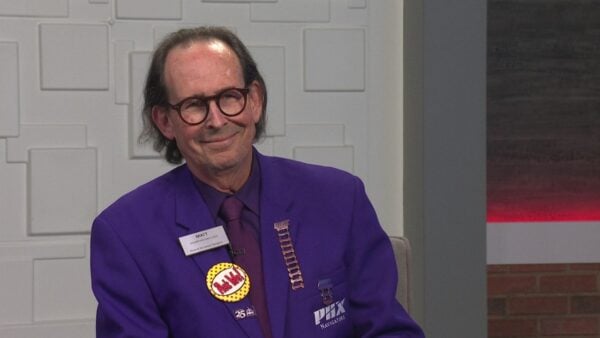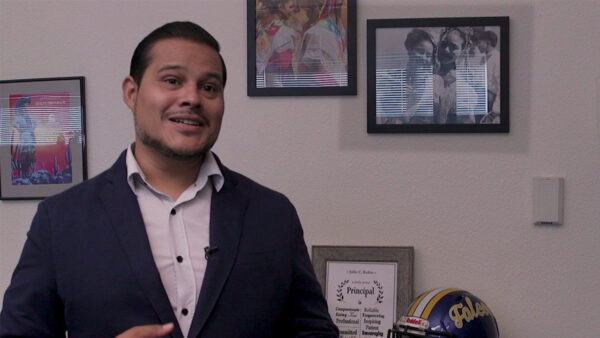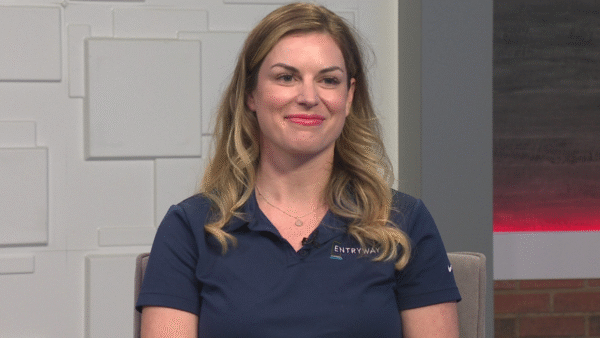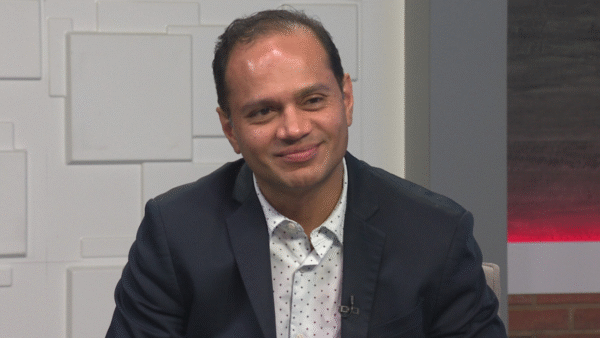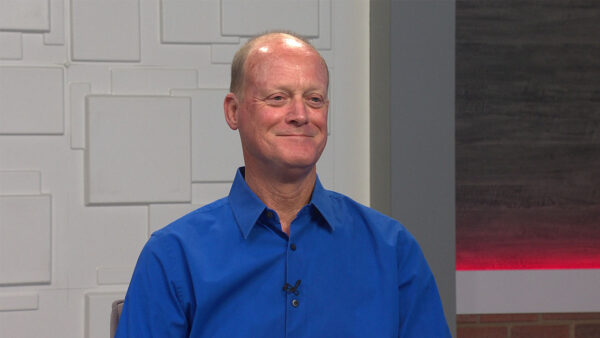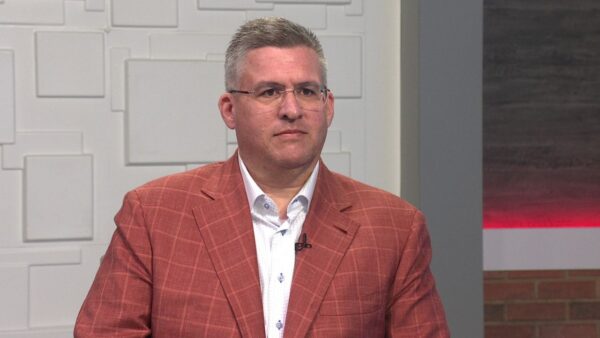Kris Mayes, a former Arizona Corporation Commissioner and current Faculty Director for the Program on Law and Sustainability at ASU’s Sandra Day O’Connor College of Law, talks about Arizona’s renewable energy standard and plans to launch a Utility of the Future Center at ASU.
Ted Simons: Tonight's focus on sustainability looks at renewable energy. Six years ago the Arizona corporation commission adopted a are renewable energy standard that requires public utilities to generate 15% of their energy from renewable resources. Kris Mayes was one of the commissioners who voted for that standard. Today she works at ASU where she is a faculty director for the program on law and sustainability for the Sandra day O'Connor school of law. Thanks for joining us on "Arizona Horizon."
Kris Mayes: Thanks. Good to be with you.
Ted Simons: As far as the renewable energy standard is concerned, give us a better definition.
Kris Mayes: They are the RES, basically a law or policy passed by the Arizona corporation commission back in 2006. What it does is tells the utilities of the state of Arizona that they must produce or procure at least 15% of their total retail sales, total energy, from solar, the sun, wind, biomass, bio gas, landfill gas or geothermal. It basically says to utilities you gotta do more to get more of your energy from renewables.
Ted Simons: 15% by 2025. Is that likely to change either a greater standard or a lessening of the standard?
Kris Mayes: Well, that's the $64,000 question. I think right now all else being equal it probably isn't likely to be changed by the Arizona corporation commission. The new commission that was just elected basically has said they are okay with the 15% by 2025, and they don't want to go much higher. Obviously, there were folks in that campaign who wanted to see -- other folks who would like to see the standard be increased. The fact of the matter is while our standard has a very high requirement within it for solar rooftops and we are because of that going to be doing more solar rooftops on a per capita basis than any other state in the country, the overall standard at 15% is still much smaller than our surrounding states. So there's a lot of people who would like to see us take that and go a little bit further. I would add to that, it's interesting the utilities have recently said that they are doing so well toward meeting that standard they are going to meet it it in two years, which is ten years early they will be done.
Ted Simons: So why wouldn't you consider tightening the standard if it's that easy to get to now, why not bump the schedule a little bit?
Kris Mayes: Well, personally I'm in favor of that. That's something I think we do need to look at. I think there's a lot of Arizonans who believe it's time that we look at that, and I think there's a lot of Arizonans who would say, gosh, if the utilities are going to be done in two years we don't want them to stop. We want them to continue to do renewable energy. There's nothing in Arizona that's more popular than solar energy. So I think that's going to be a subject of conversation over the next couple of years. You may see potentially something like a ballot initiative that would say, all right, we really do believe that in some way Arizona should continue to do solar energy.
Ted Simons: The impact you mentioned the Republican team, three Republicans ran as a team, won as a team. Keeping the standard is not likely to be all that aggressive as far as moving it forward. What other impact do you see from the new commission centers.
Kris Mayes: That's interesting. I think the new commissioners basically indicated they are okay with where the standard is and I think they also said we're going to faithfully execute and implement the existing standards. So I think you will see that. I think there are a couple of them that are very interested in water issues so you may see more of a focus on fixing our private water companies, which many of which are broken right now. I think you'll see a focus on more traditional rate making issues. Maybe some of them are meat and potatoes type stuff that the corporation commission does which is basically set rates and prices for utilities. I think that you'll continue to see a focus on renewables because those issues are always going to come up. You're going to continue to see focus on water. I think also on energy efficiency. Arizona has one of the highest energy efficiency standards in the country at 22%.
Ted Simons: What about the congressional delegation in terms of things happening back in Washington as opposed to starting to happen out here? Talk about that dynamic and we could very possibly see a democratic majority as far as the congressional delegation is concerned, impact there.
Kris Mayes: I think it's a great point. I think you have the potential for having a majority democratic delegation, two of which at least, maybe more, are strong supporters of solar in the form of and renewable energy in the form of Ron Barber and Kyrsten Sinema and Ann Kirkpatrick. Mat Salmon, who was just reelected in the east valley, is one of the strongest proponents of solar energy Arizona has ever had. When he was Congressman in the 1990s he was actually one of the co-founders of the solar caucus in Congress. Was one of the co-sponsors of the investment tax credit, which has yielded so much solar energy and renewables across the country.
Ted Simons: Talk about some of the policy concerns regarding renewables that this congressional delegation will face right now.
Kris Mayes: Well, right now this delegation is going to face a really critical issue, which is whether or not to extend what's called the production tax credit. The PTC is a tax credit that's obscure, nobody knows about it, incredibly important to supporting renewables, especially wind. This wind incentive has to be extended this year or it goes away and this country will lose literally tens of thousands of jobs in the wind sector and probably Arizona will lose the opportunity to do additional wind projects, particularly in northern Arizona. So that's the first issue. I think the congressional delegation in general is going to be asked to carry the torch on solar. We'll see whether we can get the solar caucus kick started. We'll see whether somebody steps up the way Gabrielle Giffords did during her time in Congress and supports solar energy and becomes a strong vocal champion of solar in Arizona.
Ted Simons: That first credit, is that a lame duck issue, the lame duck Congress has to take that up?
Kris Mayes: I think they should. If they don't we're in a world of hurt. The PTC is probably in a world of hurt. It's possible they could pass the production tax credit in the early part of next year maybe as part of a fiscal cliff type resolution. I don't know. But it's got to get going. They have to do something or we're going to lose a lot of jobs.
Ted Simons: How much did the Solyndra controversy hurt the industry in general?
Kris Mayes: I don't think you can overstate how bad that was. It's unfortunate that it happened. Failures always happen in a nascent and young industry. But the fact of the matter is that a lot of Americans see that as something of an emblem now and an obviously people on the far right took it up and tried to sort of tarnish and tag all of renewable energy with Solyndra. I think it was awful. We can't sweep it under the rug or ignore it. You just have to face it and talk about all the successes in this area.
Ted Simons: Let's talk about something that you're working on at ASU that hopefully will be a success. The utility of the future center. What is that all about?
Kris Mayes: Well, the utility of the future center is something we're just launching at ASU. The idea behind it is that we know that because of policies you and I have been talking about that we have passed in Arizona and elsewhere, nationally, people are doing more solar on their rooftops. Thousands of people in Arizona, tens of thousands of people are solarizing their homes. What that means is essentially you are becoming increasingly independent of the utilities. No longer do you derive as much of your energy from the utilities. Over time it means the utilities will have less and less business. When we reach the point where you can put solar on your rooftop for the same price that you can buy energy from APS, it means a lot of people are going to leave these utilities and that isn't necessarily -- it's good in the long term in the sense that people will be able to produce their own power. It could be bad in the short term in the sense that we can't have utilities that are completely unhealthy. We can't have this total disruption. We need to find a way for the utilities to bridge into a more decentralized future and become a part of the solar revolution.
Ted Simons: Basically the center will look at business models, developing new rate designs, these sorts of things, to help with a changing --
Kris Mayes: Exactly. With a changing energy landscape. And the idea is utilities are going to need to have new business models developed. We have to develop new rate designs to assist both consumers and utilities in bridging into the future. We're going to have to have education of regulators about what's going to need to happen to bridge into this future. We're also going to have to help consumers deal with all these huge changes that could happen in our energy sector.
Ted Simons: I notice it was a three-pronged approach, utilities, regulators and consumers. Help with the regulators. Dot regulators necessarily want that help?
Kris Mayes: We'll offer it and see if they take it up. I think they do and the problem with this is that both regulation and the utilities tends to be pretty stayed. It's a pretty traditional, resistant to change industry and sort of regulatory environment. So it's going to take some time for people to get used to these new rate designs, new business models. It's going to take time for consumers to get used to them. It's going to take a lot of education on all those front.
Ted Simons: The scenario as far as consumers are concerned you have to be able to monitor, to control your energy needs, your energy output, the whole nine yards. A lot of folks can barely handle paying the bill every month. There's a lot of education to be done.
Kris Mayes: There is. There's so many changes. It's happening so rapidly, and we think it could happen so rapidly, that getting people up to speed, making sure people are comfortable with this is important. Not everybody is going to make this transition at the same pace. That's what's so interesting about this new area. The utility of the future. The consumer of the future. You may decide to solarize your house. I may decide to solarize my townhouse. But you know, your neighbor doesn't necessarily want to do that. Your grandmother may not do that. Yet your grandmother still needs to have power delivered to her house. So we have to make sure that everybody, no matter where they are on the spectrum of their energy usage, and their desire to go solar or to go more energy efficient, is provided for.
Ted Simons: That brings they to the last question, it's almost as if the goal posts are moving, not only for consumers, regulators, but the entire industry. Is that good or just making it that much more difficult? It seems every year there's been technology, the prices go up, the prices go down, the Chinese dump on the market, they pull back.
Kris Mayes: In the long run I think it's good. We're all striving for one objective, and we're starting to see it on the "Horizon." That objective in my mind is that each of us has an equal opportunity to provide energy to ourselves and to become more independent not only of other countries but of our utilities, of monopolies, and so we're reaching that point. We're -- it's insight. But the next couple years and beyond, that maybe ten years, are going to be critical. As you side, you'll see all kinds of new technologies that are developed over time and that are tried. Some will fail. Not everything is going to succeed, but certainly getting to that point is where we want to be.
Ted Simons: All right, good to see you. Thanks for joining us. Good to see you.
Kris Mayes: Good to be here.
Ted Simons: I'm Ted Simons. Thank you for joining us. You have a great evening.
Kris Mayes:Faculty Director, Program on Law and Sustainability, ASU Sandra Day O'Connor College of Law and Former Arizona Corporation Commissioner;


